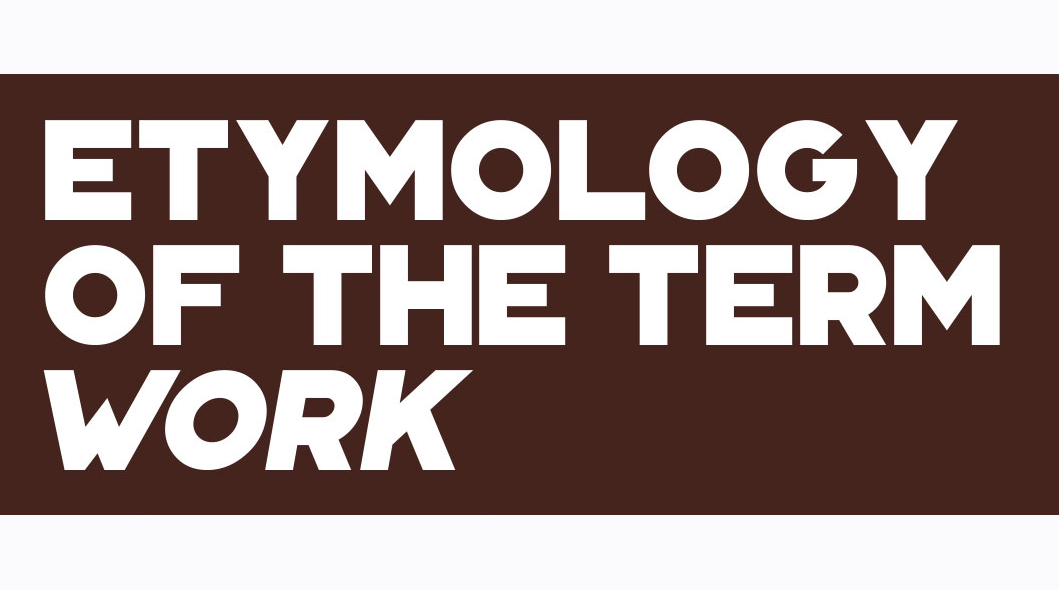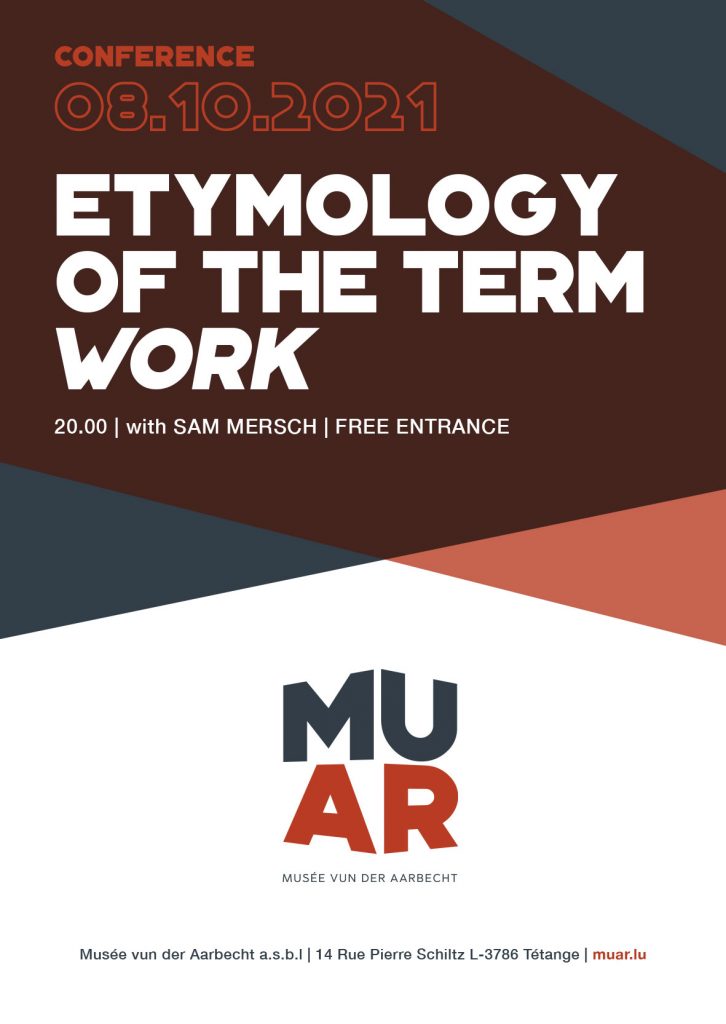
Conference – Etymology of the term: work
[E]
In this talk, Sam Mersch, from the “Zenter fir d’Lëtzebuerger Sprooch” looks at the origin of the term work in European languages (and beyond), shedding light on its origin and specific usage. His focus here is on the etymology, meaning the linguistic study of the origin of words.
In English, we speak of “work”, in French of “travail”, in German of “Arbeit” and in Luxembourgish of “Aarbecht” all being generic words designating a working activity. Several of these terms can be traced back to a common origin, but the specificities of how a word is used and where it comes from can highlight social and cultural nuances of the past.
It will be a multilingual presentation.
Sam Mersch studied history, archeology, classiscs and historical linguistics in Germany and the U.S. He holds a degree in modern history (M.A. Neuere Geschichte) and in Indo-European linguistics (M.A. Indogermanistik) from the Friedrich-Schiller-University in Jena/Germany. His research focuses on cultural and social studies.
He holds a PhD in linguistics from the University of Luxembourg and focussed in his thesis on studying the linguistic history of the Luxembourgish language.
[L]
Den Ursprong, de Gebrauch an d’Entwécklung vu Wierder fir d’Notioun Aarbecht (engl. work, lëtz. Aarbecht, engl. labour, frs. travail a méi)
An dësem Virtrag gi grondleeënd Konzepter bei de Wierder a Sprooche vun Europa (an doriwwer eraus) mat der graffer Bedeitung Aarbecht diskutéiert. Dobäi läit de Fokus op der Etymologie, also der linguistescher Originn, vu Wierder ewéi Englesch work a labour, Franséisch travail a Lëtzebuergesch Aarbecht, alles geneeresch Termen, déi d’Aktivitéit vum Schaffen designéieren. Verschidde vun dëse Wierder hunn e gemeinsamen Ursprong, allerdéngs kann ee genauen Kontext, wéi e Wuert benotzt ginn ass a wou et hirkënnt, op ee vergaangene sozialen a kulturellen Ëmgang weisen.
D’Presentatioun wäert méisproocheg sinn.
**CovidCheck-Event
https://covid19.public.lu/en/covidcheck/certificate.html


